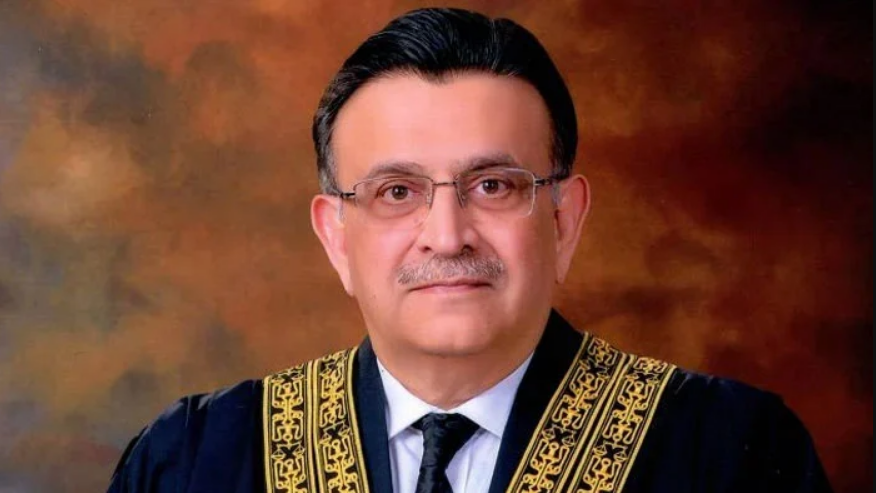By Ali Imran
ISLAMABAD: Chief Justice of Pakistan (CJP) Umar Ata Bandial said on Wednesday that the boat tragedy on Greek shores — which resulted in the deaths of nearly 300 Pakistanis — was a matter of human rights.
He passed these remarks as a two-member bench, comprising the CJP and Justice Sayyed Mazahar Ali Akbar Naqvi, took up petitions pertaining to the trafficking of minors.
At least 600 migrants, out of possibly 750, on the fishing boat that set off from Libya towards European shores, perished when their vessel capsized in the Mediterranean Sea last month.
The passengers largely comprised Pakistanis, Afghans, Egyptians, Palestinians and Syrians migrating in the overloaded boat. It was a recurring tragedy — with no end in sight as economic, political and climate crises compelled increasingly large numbers of people to flee their homes.
The tragedy of such immense proportions was believed to have taken place in the presence of maritime authorities. It was also believed that Pakistani nationals were forced to stay below the deck by the crew, which maltreated them during the journey.
Referring to the tragedy during the hearing today, Justice Bandial noted that innocent and poor people were tricked into going abroad on the pretext of better jobs.
“Citizens are duped by human traffickers and pay millions of rupees,” the top judge said, pointing out that even children and women were becoming victims of human smuggling.
“Does the government have statistics on the number of children being smuggled,” the CJP asked.
To the query, the director general of the human rights ministry said, “Unfortunately, accurate data is not available.”
Here, Justice Bandial highlighted that there was “ambiguity” in the laws against human smuggling in 2018, adding that the primary concern was the unavailability of a “specialist force” for the implementation of the laws.
“The responsibility of stopping human smuggling was also under the police,” he said. “The Supreme Court had also asked the provincial governments to play their role against human trafficking.”
At one point during the hearing, the CJP also recalled the Tayyaba torture case.
The case of Tayyaba, a minor domestic worker employed in former additional district and sessions judge Raja Khurram Ali Khan and his wife Maheen Zafar’s household, first came to light after photos of the tortured child began circulating on social media in 2016.
She was rescued from their residence with visible injuries on December 28, 2016, and a first information report was filed against her employers the following day.
Although Raja Khurram had reached a compromise with Tayyaba’s parents on January 2, 2017, the SC took suo motu notice of the matter two days later with the strict warning that “no ‘agreements’ can be reached in matters concerning fundamental human rights”.
Referring to the case today, CJP Bandial said Tayyaba was now a 9th-grade student. “Tayyaba was abandoned by her parents and she is now living in an SOS village.”
“The aim is not just to protect children but also strengthen them,” the top judge added.
Subsequently, the court sought reports from all the provinces regarding measures taken to curb human smuggling and data on children out of school within a month.



